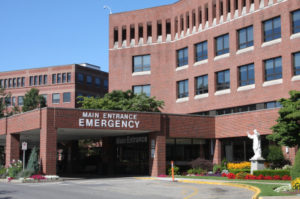ER Overuse May be Overstated
The common perception that many hospital emergency rooms are significantly overused by people not suffering genuine medical emergencies may not be accurate according to a new report published in the Journal of the American Medical Association.
According to the study “Comparison of Presenting Complaint vs. Discharge Diagnosis for Identifying ‘Nonemergency’ Emergency Department Visits,” many ER patients who turn out not to be suffering genuine medical emergencies present with virtually the same symptoms as patients who are suffering true emergencies. This suggests that it may be unreasonable in at least some cases for patients to determine whether their medical problems genuinely require emergency assistancePennsylvania’s safety-net hospitals typically experience very high emergency room utilization.
Overuse of hospital emergency rooms is frequently cited as a major cause of rising health care costs.
Read more about these latest findings in this New York Times blog entry and find the JAMA study here.






